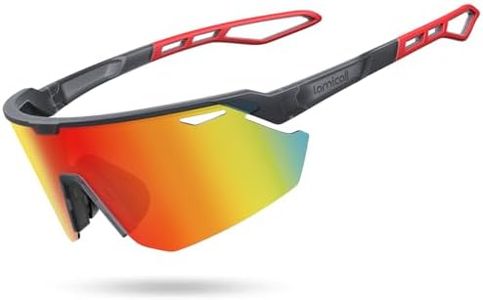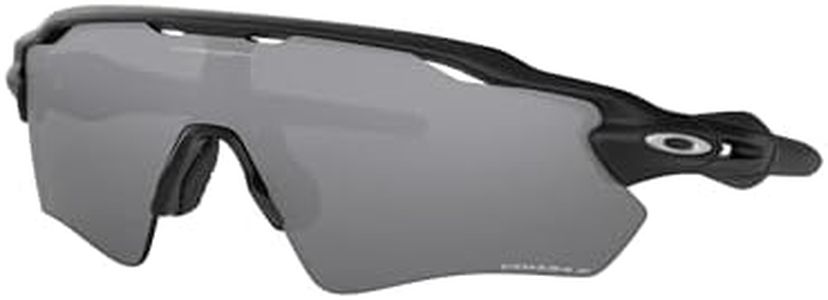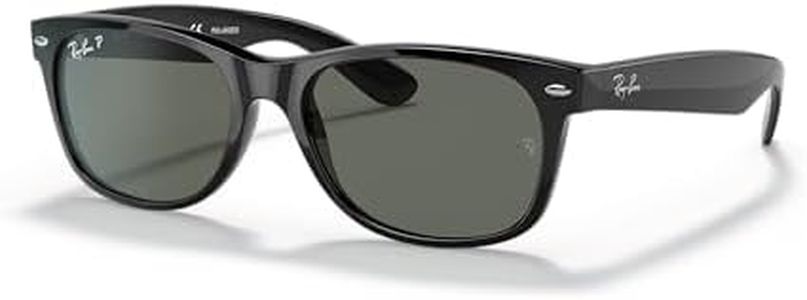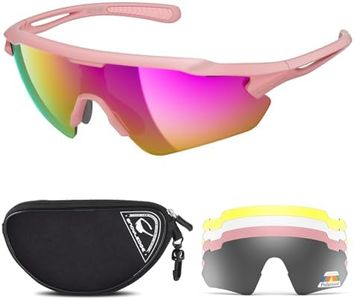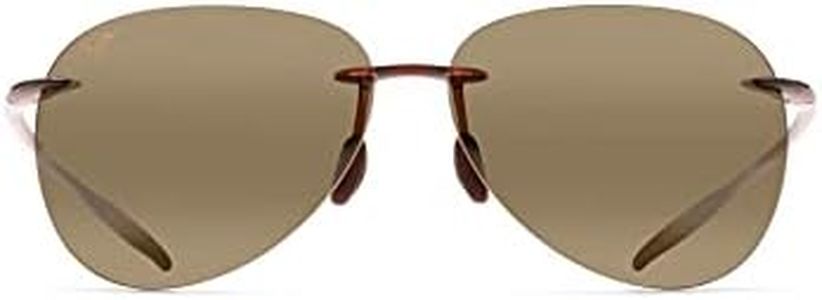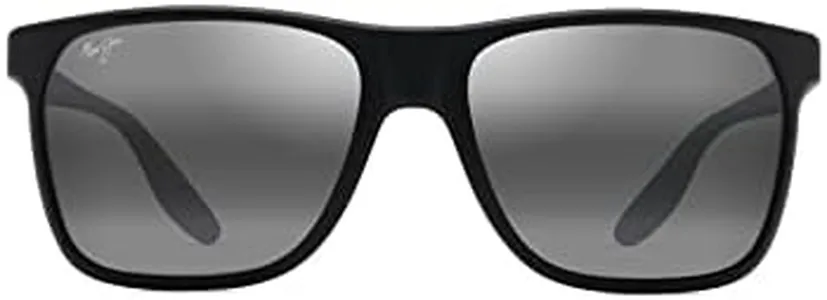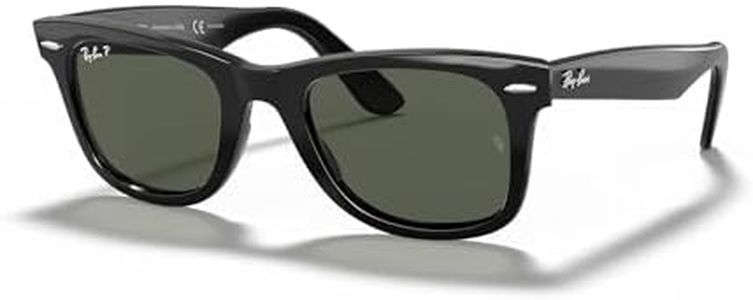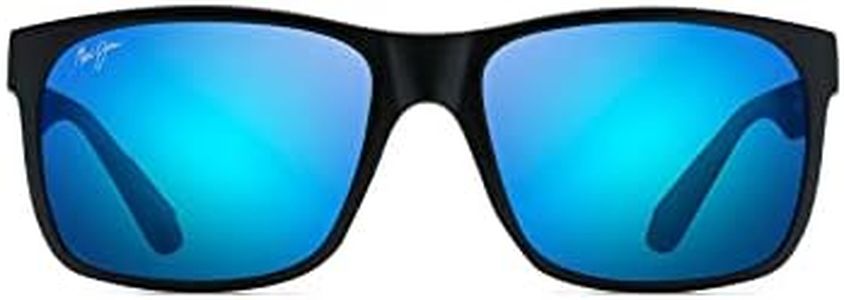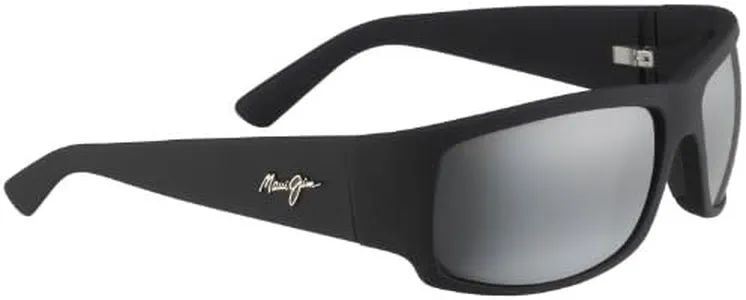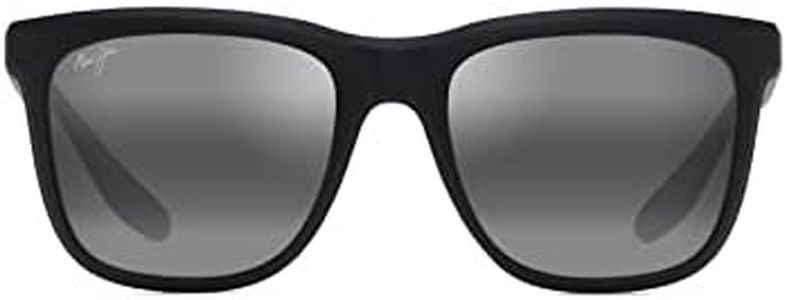We Use CookiesWe use cookies to enhance the security, performance,
functionality and for analytical and promotional activities. By continuing to browse this site you
are agreeing to our privacy policy
10 Best Saltwater Fishing Sunglasses
From leading brands and best sellers available on the web.By clicking on a link to a third party's website, log data is shared with that third party.
Buying Guide for the Best Saltwater Fishing Sunglasses
Choosing the right saltwater fishing sunglasses can make a big difference in your comfort, eye protection, and fishing success. Good sunglasses protect your eyes from harsh sun and glare while helping you see what's happening beneath the water's surface. When shopping for these sunglasses, it's important to think about where, when, and how you'll use them, and ensure they are functional and comfortable for long days outdoors.Lens MaterialThe lens material is what the sunglasses’ lenses are made of, and it affects their clarity, weight, and durability. The main options are glass, polycarbonate, and plastic. Glass lenses are heavier but very scratch resistant and offer clear vision, making them great for frequent users. Polycarbonate lenses are lighter, more impact-resistant, and less likely to shatter, which is better if you're active or clumsy. Basic plastic lenses are cheaper but tend to scratch more easily and may offer less clarity. Your need for durability and optical performance should guide your choice: go for glass if you want the best clarity and don’t mind a bit of extra weight, and pick polycarbonate for lighter and safer eyewear especially if you're moving a lot.
PolarizationPolarization is a lens feature that helps reduce glare from reflective surfaces like water, making it easier to see into the water and spot fish. All serious saltwater fishing sunglasses are polarized, but the degree of polarization and quality can vary. Good polarization is important if you want to reduce eye strain and actually see through the water's glare. If fishing in bright, open waters is your usual scenario, strong polarization is a must. Make sure the sunglasses are truly polarized and not just tinted for best results.
Lens ColorLens color affects how you see in different sunlight conditions and can bring out details both above and below water. Popular choices for saltwater fishing include blue or gray lenses, which are best for bright, sunny days and open water because they reduce glare and offer realistic color. Green, copper, or amber lenses work well in mixed lighting or shallower waters; they enhance contrast and visibility. Think about when and where you fish most — for offshore in full sun, go with blue or gray; for inshore or variable conditions, choose green or amber.
UV ProtectionUV protection determines if your sunglasses can shield your eyes from harmful ultraviolet rays. Look for lenses that block 100% of UVA and UVB rays, as this helps prevent long-term eye damage from repeated sun exposure. Most quality sunglasses mention this protection. Make it non-negotiable: always pick sunglasses with clear claims of full UV protection for maximum safety.
Frame Fit and CoverageFrame fit and coverage refer to how well the sunglasses fit your face and how much of your eyes they shield from the sides, top, and bottom. Wraparound frames and wider arms block more sunlight and wind, which is important on open water. A good fit means the sunglasses stay put even when you’re active, and good coverage means less glare sneaks in. Try different shapes to see what sits comfortably on your nose and ears, and check that your peripheral vision isn’t blocked.
Saltwater ResistanceSaltwater resistance means sunglasses can handle exposure to salty air or splashes without quickly corroding or degrading. Important areas are hinges and any metal parts; look for frames and hardware made with corrosion-resistant materials like stainless steel or certain plastics. If you’ll be on or near saltwater a lot, prioritize sunglasses labeled as durable or resistant to corrosion, and rinse them with fresh water after each use to prolong their life.
